All fields are required
Posted in E. coli,Our Blog,Outbreaks & Recalls on November 19, 2019
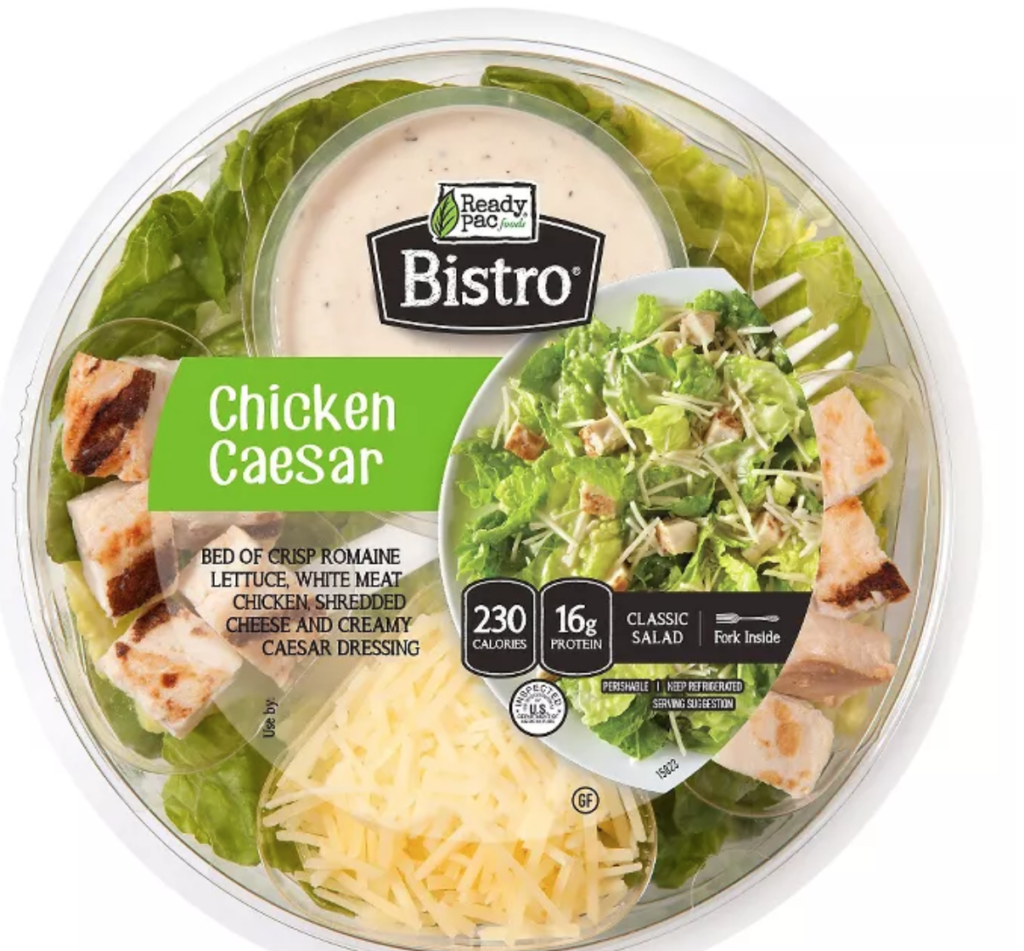
An announcement has been made by the Maryland Department of Health that there is a Ready Pac Bistro® Bowl Chicken Caesar Salad Ecoli Outbreak in Maryland. Thus far, 7 people have confirmed illnesses in this outbreak – one of which has been hospitalized. Thankfully, no deaths have been reported at this time.
The FDA and the Maryland Department of Health both took to social media to get the word out:
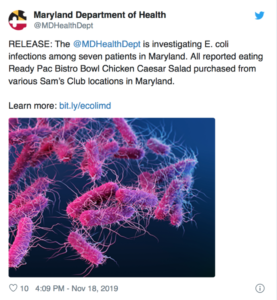
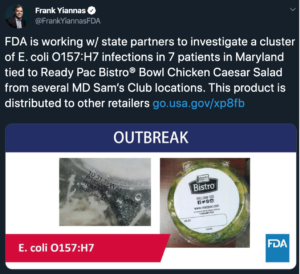
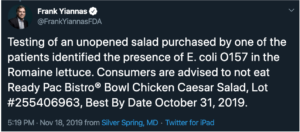
The Maryland Department of Health has also confirmed that “all [ill people] reported eating Ready Pac Bistro® Bowl Chicken Caesar Salad purchased from various Sam’s Club locations in Maryland.” But this outbreak may not just be in Maryland. In addition to Sam’s Club, the salad bowls are also available in other stores across the United States. The investigation is still ongoing.
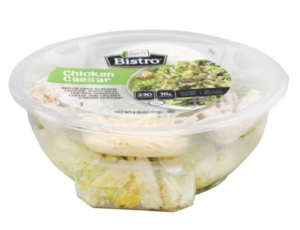
According to the press release:
“Consumers are advised not to eat Ready Pac Bistro® Bowl Chicken Caesar Salad, lot #255406963, “Best By” date Oct. 31, 2019. Testing of unopened salad purchased by one of the patients identified the presence of E. coli O157 in the romaine lettuce. In addition to Sam’s Club, these salad bowls are distributed to many other retailers. The investigation is ongoing and additional laboratory testing is pending. There have been prior outbreaks of E. coli O157 linked to romaine lettuce.”
In the meantime, it is a good idea to not eat the affected food product, even if you have already eaten from the container. Foodborne illness lawyers recommend to heed caution and avoid this product. E. coli lawyer Jory Lange advises the old adage, “When it doubt, throw it out.”
We don’t know yet if the Ecoli outbreak in Wisconsin is linked to the Maryland one. Since November 13, Wisconsin officials say they are investigating 20 cases, three involving children. They say the cases are scattered across the state and are not isolated in any one region. The source is still largely unknown, but those sick reported “eating a lot of salads.”
Dr. Larry Lutwick is an infectious disease specialist with the Mayo Clinic in Eau Claire. He said he’s seen three cases of Ecoli at his facility and believes they may be linked to the outbreak. He thinks his patients could have contracted the bacteria from lettuce. “In two of the three cases they suspected it was from a salad or salad ingredient,” Lutwick said.
Ecoli come from animals. Most E. coli are harmless and are actually an important part of a healthy human intestinal tract. However, some E. coli can cause diarrhea, urinary tract infections, respiratory illness, bloodstream infections, and other illnesses. The types of E. coli that can cause illness can be transmitted through contaminated water or food, or through contact with animals or people.
As for STEC Ecoli, according to the CDC, “STEC live in the guts of ruminant animals, including cattle, goats, sheep, deer, and elk. The major source for human illnesses is cattle. STEC that cause human illness generally do not make animals sick. Other kinds of animals, including pigs and birds, sometimes pick up STEC from the environment and may spread it.”
Like most other foodborne symptoms, Ecoli is hard to diagnose. This is not due to the ability for hospitals to test to see what has made you ill, it is because the signs are mostly all the same. Do any of these symptoms look familiar?
Looks like a list for the common flu. These are also what it feels like to have Ecoli. As you can see, there is little difference without seeking medical help. That is my admonishment: please do not take any sickness lightly. Make sure you see a medical professional as soon as possible because the alternative is not pleasant.
The majority of people infected with E. coli will exhibit symptoms of diarrhea and abdominal cramps within 2 to 8 days after ingestion of the bacteria.
Urgent medical attention is highly recommended if you or someone you love has the above symptoms. Early medical attention can help reduce the risk of more severe illness and potential long-term complications.
In extreme instances, pay special attention to these indicators that something is severely wrong:
If you have experienced any of the symptoms listed above, it is a good idea to reach out to your healthcare provider, even if your symptoms are mild.
You should contact your healthcare provider if you experience diarrhea lasting for more than 3 days or vomit so much that you cannot keep liquids down or pass very little urine. These are signs of severe dehydration that can result in life-threatening illness.
Due to the range in severity of illness, the CDC and FDA also recommend that people should consult their doctors if they suspect that they have developed symptoms of an Ecoli infection, including HUS. Ecoli can cause severe illness, even in healthy individuals.
Hemolytic Uremic Syndrome (HUS) is a dangerous, and sometimes fatal disease characterized by anemia, low platelet count, and renal distress. HUS is commonly the result of infection by a specific class of foodborne pathogenic E. coli strains known as STEC or Shiga-toxin producing E. coli.
In the case of HUS caused by foodborne illness, the initial, acute effects of HUS (anemia, renal dysfunction, and reduced platelet count) usually follow the traditional, well-known symptoms associated with foodborne illnesses (nausea, diarrhea, fever, vomiting).
Acute effects of HUS are profoundly dangerous, particularly for high risk populations like children or the elderly. When prompt, appropriate medical intervention is available, the immediate mortality rate for HUS is between 5 and 10%.
Unfortunately, the acute effects of HUS are not the only concern. In some cases, long-term damage to the kidneys and other organs can result in persistent or recurrent health concerns that can have a drastic effect on a patient for the remainder of their life.
Food experts have come forward in light of this outbreak to remind the public of the dangers of this particular type of E. coli infection. Assistant professor of agricultural economics at the University of Connecticut John Bovay commented in a recent article, “Some strains of E. coli bacteria produce toxins that can make us sick. When fresh fruit or vegetables become contaminated with one of these forms of E. coli, it can cause numerous illnesses all across the country because fruit and vegetables are shipped thousands of miles and are rarely cooked to a temperature that would kill E. coli.”
If you believe you have developed an E coli infection from eating Ready Pac Bistro® Bowl Chicken Caesar Salads, we want you to know that a Lawyer at the Lange Law Firm, PLLC is currently investigating this Ready Pac Bistro® Bowl Chicken Caesar Salad Ecoli Outbreak and offering free legal consultations. Our E.coli lawyer, Jory Lange became a lawyer to help make our communities and families safer. Anyone who was infected with E coli from this outbreak may be entitled to compensation for their injuries. To learn more about this outbreak or making an E coli food poisoning claim, please contact us.
If you or a loved one have become ill with E coli, you can call (833) 330-3663 for a free legal consultation or complete our online form.
By: Candess Zona-Mendola, Editor (Non-Lawyer)